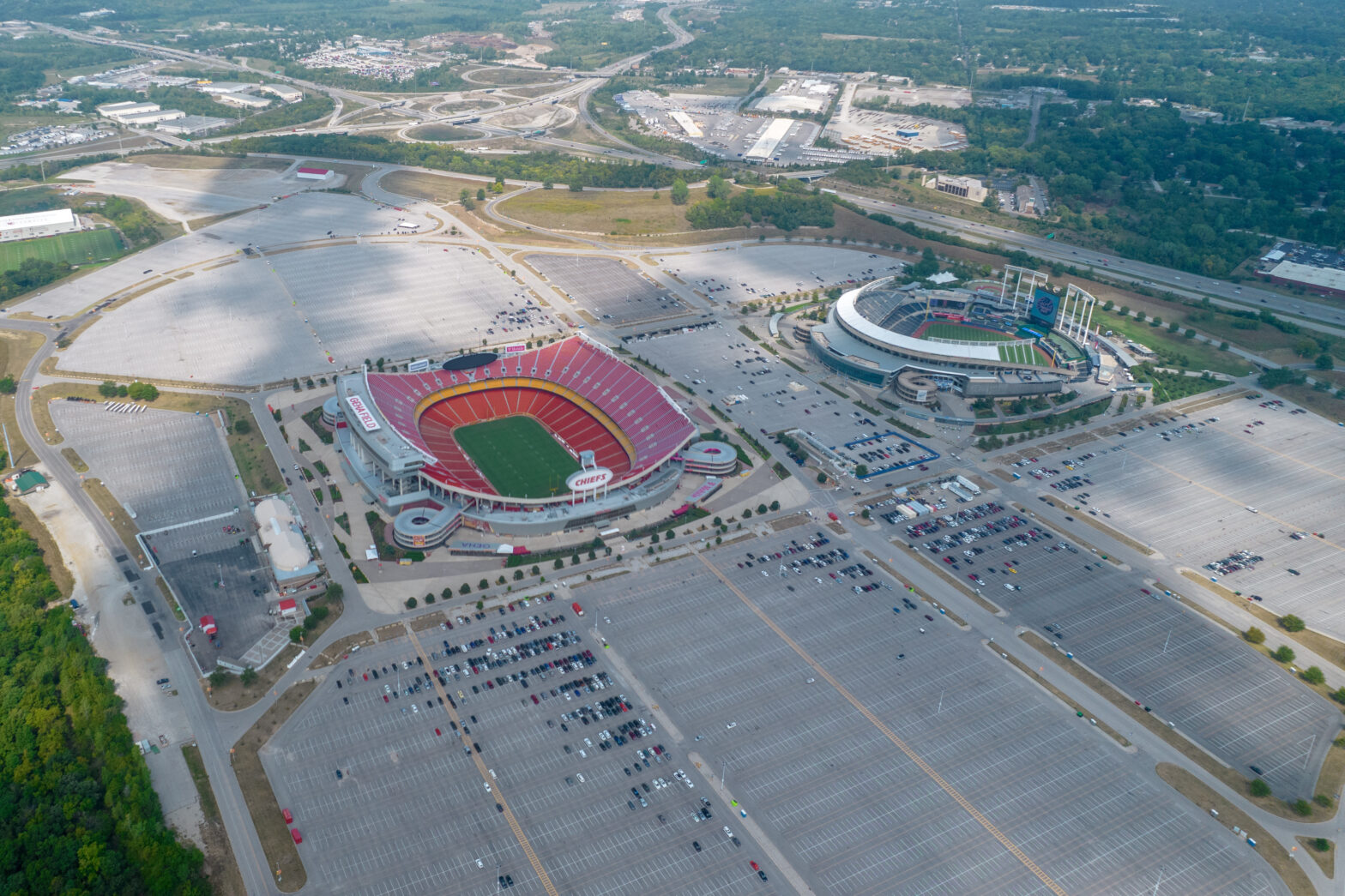A football stadium might seem like an unlikely arena for state-level economic policy, but in Missouri, Arrowhead and Kauffman Stadiums have become exactly that. As the Kansas City Chiefs and Royals entertain relocation offers from Kansas, Missouri Governor Mike Kehoe is betting big to keep them home.
Why? Because the stakes go far beyond team loyalty—they involve jobs, tax revenue and billions in economic activity. Arrowhead Stadium alone supports more than 4,500 jobs and brings in $28.8 million in annual state taxes. The broader economic footprint of the Chiefs approaches $1 billion in yearly regional economic output. The Royals, proposing a new downtown stadium and entertainment district, estimate their project would create 8,400 jobs and deliver $1.2 billion annually.
The state of Kansas has taken notice. Its proposal: support up to 70% of construction costs for new stadiums for the Chiefs and the Royals—but on the Kansas side of the greater Kansas City area. It’s an economic development decision made in pursuit of a high-impact asset.
In response to this offer from Kansas, Missouri Governor Kehoe called a special legislative session to propose a package that includes state-backed bonds and $50 million in tax credits. Some agree with the state support and others feel capital should be deployed elsewhere. The debate reflects how the economic geography of professional sports has evolved. Franchises are no longer simply tenants in publicly funded buildings—they can be regional economic engines with substantial bargaining power.
Yet voter skepticism lingers. Jackson County Missourians recently rejected a sales tax extension to fund stadium improvements. Critics argue public funds would be better spent on infrastructure, education or health care. But if Kansas succeeds, Missouri won’t just lose two beloved franchises—it will forfeit thousands of jobs, tourism revenue and the civic halo effect that comes with national exposure on jerseys and broadcasts seen nationwide.
The implications transcend economics. Sports teams help define the cultural fabric of a community. They foster civic pride, provide a shared identity and unite communities. The Chiefs’ recent Super Bowl runs and the Royals’ 2015 World Series title have elevated Kansas City’s national profile, attracting new business and investment. Losing that presence would be more than a financial loss to the state, it would be a symbolic one too.
The long-term effects could be significant. Declines in tourism could weaken Missouri’s hospitality sector and lead to job loss. Fewer major events could reduce national visibility, diminishing Missouri influence and appeal.
But it seems that Missouri recognizes the stakes and has no plans to let go of these teams—on June 5th, in an overnight vote, the Missouri Senate approved a plan* aimed at keeping the Chiefs and Royals in the state, endorsing the proposed financing package to support stadium projects. The measure must still pass in the House and receive the Governor’s signature, but it’s a promising step forward for Missouri in retaining the economic and cultural value provided by the Chiefs and the Royals.
Ultimately, this is not just a sports debate. It’s a reflection of how cities and states compete in today’s economy. Talent, capital and attention gravitate towards places with momentum, and major league franchises (love them or not) are magnets for all three.
*This is a developing story and should be monitored for further legislative updates and final decisions.

